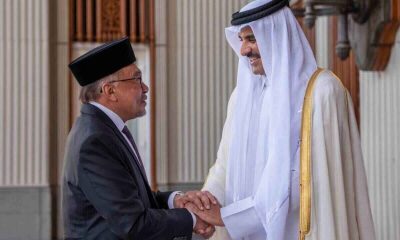After years of strained relations, Turkey has made significant strides in mending ties with the Gulf Cooperation Council (GCC) countries, paving the way for deeper economic cooperation. The recent agreement to launch negotiations for a Free Trade Agreement (FTA) between Turkey and the GCC marks a pivotal moment in their burgeoning partnership.
The signing of this deal signifies a mutual desire to foster stronger economic ties and unlock new opportunities for trade, investment, and development. As Turkish Trade Minister Omer Bolat emphasized, the FTA will liberalize trade in goods and services, facilitate investments, and substantially increase Turkey’s trade volume with the Gulf region.
Strategic Alignment and Economic Synergies
The potential FTA between Turkey and the GCC carries immense strategic importance for both parties. For Turkey, it represents a crucial step towards diversifying its trade partners and reducing its reliance on traditional markets. By forging closer economic ties with the resource-rich Gulf nations, Turkey can tap into new sources of investment and capitalize on the region’s vast wealth.
On the other hand, the Gulf states are actively pursuing economic diversification strategies, aiming to reduce their dependence on oil exports. Turkey’s robust industrial base, technological capabilities, and skilled workforce make it an attractive partner for these nations as they seek to develop local industries and acquire cutting-edge technologies.
A Collaborative Path to Prosperity
According to Bolat, the negotiations are expected to be completed swiftly, paving the way for one of the world’s largest free trade areas, with a combined value of $2.4 trillion. This figure underscores the immense potential for growth and prosperity that could arise from seamless trade and investment flows between Turkey and the GCC members.
The FTA’s scope extends beyond mere trade facilitation. It is envisioned as a comprehensive framework that will address various aspects of economic cooperation, including investment promotion, joint ventures, and technology transfer. By removing barriers and fostering an enabling environment, the agreement aims to unlock new avenues for collaboration across diverse sectors, from manufacturing and energy to services and innovation.
A Catalyst for Regional Integration
GCC Secretary General Jasem al-Budaiwi hailed the accord as a testament to the robust and strategic partnership between the GCC countries and Turkey. He highlighted the successful cooperation across various fields, including commerce, economics, and finance, emphasizing the mutual benefits that can be derived from deeper integration.
Moreover, the FTA negotiations between Turkey and the GCC could catalyze broader regional integration, fostering closer economic ties among neighbouring nations. As trade barriers fall and economic linkages strengthen, the region could witness enhanced cross-border investment, knowledge sharing, and the development of interconnected supply chains, ultimately contributing to sustainable growth and prosperity.
As Turkey and the Gulf states embark on this new chapter of cooperation, the world watches with anticipation, eager to witness the transformative impact of their strengthened partnership on the region’s economic landscape.
Read more: COP28 President applauded for historic UAE Consensus at climate summit






















